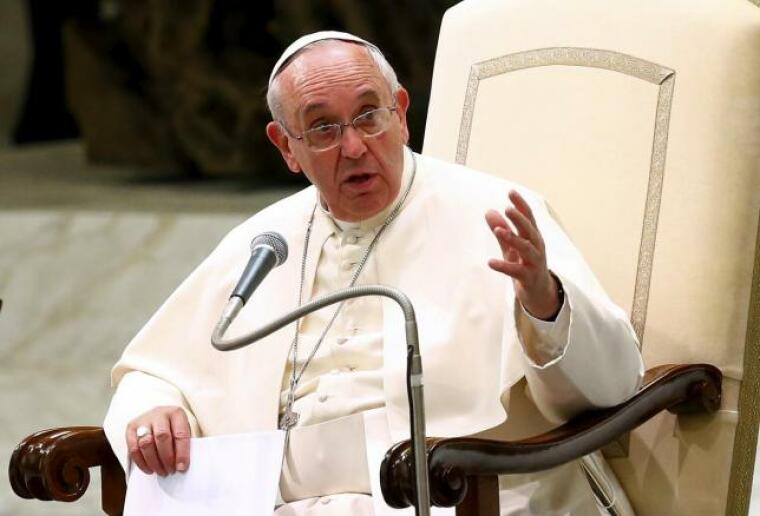Vatican hosts conference on regenerative medicine
The Vatican, through the Pontifical Council for Culture's office for Science and Faith and The Stem For Life Foundation hosted a three-day conference on regenerative medicine on April 28–30. The central theme of the conference was "Cellular Horizons: How Science, Technology, Information and Communication Will Impact Society."

In a press release by the Vatican Radio, the president of The Stem For Life Foundation, Dr. Robin Smith, said that the conference would bring delegates from all over the world together for a discussion on "a powerful idea — that the cells of our bodies hold the potential to vanquish disease, reduce global suffering and inspire hope for people around the world living with illness."
The conference allowed researchers, doctors, scientists, business leaders, politicians, and philantropists to discuss treatment and therapies for illnesses such as pediatric cancer, diabetes, autoimmune disorders, and other rare diseases. The delegates talked about the delivery of health care using the latest technology. Conference speakers tackled topics on stem cell research, building regenerative care models, cell therapy, and philanthropy as well as cellular innovation and distribution, among others. Research, regulation, and funding of such programs were also presented.
The Pope met with the delegates of the conference and talked about the morality of new research in regenerative medicine. U.S. Vice President Joe Biden, who lost his son to cancer last year, also spoke during the conference, urging governments and pharmaceutical firms to share resources and increase cooperation in order to accelerate development of new treatments for cancer.
Furthermore, Cardinal Gianfranco Ravasi, president of the Pontifical Council for Culture, stated, according to Vatican Radio, that in this Jubilee Year of Mercy, society should be challenged to search for cures for human illnesses, and that breakthroughs in regenerative medicine hold great promise for the future, especially for those who suffer around the world from these diseases.
 Christians don't have to affirm transgenderism, but they can’t express that view at work: tribunal
Christians don't have to affirm transgenderism, but they can’t express that view at work: tribunal Archaeology discovery: Medieval Christian prayer beads found on Holy Island
Archaeology discovery: Medieval Christian prayer beads found on Holy Island Presbyterian Church in America votes to leave National Association of Evangelicals
Presbyterian Church in America votes to leave National Association of Evangelicals Over 50 killed in 'vile and satanic' attack at Nigerian church on Pentecost Sunday
Over 50 killed in 'vile and satanic' attack at Nigerian church on Pentecost Sunday Ukrainian Orthodox Church severs ties with Moscow over Patriarch Kirill's support for Putin's war
Ukrainian Orthodox Church severs ties with Moscow over Patriarch Kirill's support for Putin's war Islamic State kills 20 Nigerian Christians as revenge for US airstrike
Islamic State kills 20 Nigerian Christians as revenge for US airstrike Man who served 33 years in prison for murder leads inmates to Christ
Man who served 33 years in prison for murder leads inmates to Christ


 Nigerian student beaten to death, body burned over ‘blasphemous’ WhatsApp message
Nigerian student beaten to death, body burned over ‘blasphemous’ WhatsApp message 'A new low': World reacts after Hong Kong arrests 90-year-old Cardinal Joseph Zen
'A new low': World reacts after Hong Kong arrests 90-year-old Cardinal Joseph Zen Iran sentences Christian man to 10 years in prison for hosting house church worship gathering
Iran sentences Christian man to 10 years in prison for hosting house church worship gathering French Guyana: Pastor shot dead, church set on fire after meeting delegation of Evangelicals
French Guyana: Pastor shot dead, church set on fire after meeting delegation of Evangelicals ‘Talking Jesus’ report finds only 6% of UK adults identify as practicing Christians
‘Talking Jesus’ report finds only 6% of UK adults identify as practicing Christians Mission Eurasia ministry center blown up in Ukraine, hundreds of Bibles destroyed: 'God will provide'
Mission Eurasia ministry center blown up in Ukraine, hundreds of Bibles destroyed: 'God will provide' Church holds service for first time after ISIS desecrated it 8 years ago
Church holds service for first time after ISIS desecrated it 8 years ago Burger King apologizes for 'offensive campaign' using Jesus' words at the Last Supper
Burger King apologizes for 'offensive campaign' using Jesus' words at the Last Supper Uganda: Muslims abduct teacher, burn him inside mosque for praying in Christ’s name
Uganda: Muslims abduct teacher, burn him inside mosque for praying in Christ’s name